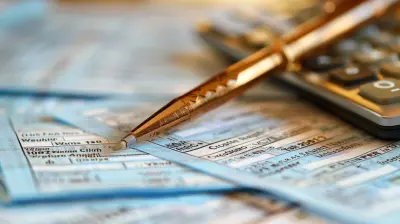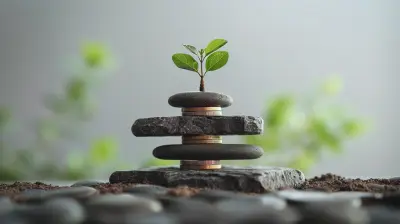Why You Should Never Max Out Your Credit Card
29 May 2025
Credit cards can feel like a financial lifeline or even a magic wand—swipe, and you can buy whatever you need. But what happens when you push your credit card to its limit? Maxing out your credit card may seem like a quick fix in times of financial strain, but in reality, it can unleash a financial nightmare.
In this article, we’ll break down why you should never max out your credit card, the dangers it poses, and how you can avoid falling into this trap. 
What Does Maxing Out Your Credit Card Mean?
Simply put, maxing out your credit card means using your full credit limit. If your card has a $5,000 limit and you’ve spent all $5,000, you’ve officially maxed it out.While it may not seem like a big deal at first—especially if you plan on paying it off later—this financial habit can have lasting negative consequences.
Let’s dive into why you should avoid it at all costs. 
The Major Risks of Maxing Out Your Credit Card
1. Your Credit Score Will Take a Hit
One of the biggest dangers of maxing out your credit card is the damage it can do to your credit score. Your credit utilization ratio—the percentage of your available credit that you’re using—plays a significant role in determining your credit score.A good rule of thumb? Keep your credit utilization below 30%. Maxing out your card means hitting 100% utilization, and that’s a red flag to lenders. They might see you as financially irresponsible or struggling to manage your money. This could make it harder to qualify for loans, mortgages, or even new credit cards in the future.
2. You’ll Struggle with High-Interest Rates
Credit cards come with some of the highest interest rates in the financial world, often ranging from 15% to 30%. If you carry a balance after maxing out your card, your interest charges will skyrocket.For example, if you have a $5,000 balance on a credit card with a 20% interest rate, and you only make the minimum payment, you could end up paying thousands of dollars in interest alone.
It’s a slippery slope—before you know it, you're drowning in debt with no easy way out.
3. Minimum Payments Won’t Save You
When your credit card is maxed out, the minimum payment might seem manageable, but it barely covers the interest charges. Paying the minimum means your balance barely decreases, keeping you stuck in a cycle of never-ending debt.The longer you take to pay off your balance, the more interest you accrue, making it harder to get out of debt.
4. You’ll Have No Emergency Credit Available
Life is unpredictable. Car repairs, medical bills, or unexpected expenses can pop up at any time. If your credit card is maxed out, you have no financial cushion to fall back on.Imagine needing funds for an emergency and realizing your only credit card is already at its limit—what then?
5. Over-Limit Fees Could Apply
Some credit card companies allow you to go slightly over your limit but will slap you with expensive over-limit fees. These fees add to your already growing balance and make repayment even tougher.Even if your card doesn’t have over-limit fees, your issuer may decline transactions, leaving you embarrassed and financially stuck.
6. Your Credit Card Issuer Might Reduce Your Credit Limit
Believe it or not, your credit card company can lower your credit limit if they see risky spending behavior—like maxing out your card. If you’re already riding at 100% credit utilization, a sudden limit reduction could push your utilization ratio higher, further damaging your credit score.It’s a downward spiral that can make recovery even harder. 
How to Avoid Maxing Out Your Credit Card
Now that we’ve covered why maxing out your credit card is a terrible idea, let’s talk about proactive steps to avoid it.1. Track Your Spending
Keeping an eye on your spending helps you stay within reasonable limits. Check your online banking or credit card app regularly to monitor your balance.2. Stick to a Budget
If you're relying too much on your credit card for daily expenses, it’s time to re-evaluate your budget. Allocate specific amounts for necessities like rent, groceries, and transportation so you don’t have to lean so heavily on your credit card.3. Use Multiple Payment Methods
Instead of relying solely on your credit card, mix it up with cash, debit cards, or even digital payment services. Using different payment methods prevents you from maxing out a single credit card.4. Pay More Than the Minimum
Always aim to pay more than your minimum balance. Even if you can’t pay in full, putting extra money toward your balance every month will help reduce interest charges and get you out of debt faster.5. Set Up Balance Alerts
Many credit card companies allow you to set up alerts when you’re close to reaching your credit limit. These warnings can serve as a wake-up call to keep your spending in check.6. Increase Your Credit Limit (Only If You're Responsible)
If you’re a responsible borrower with a good credit history, you may qualify for a credit limit increase. While this can lower your credit utilization percentage, it’s only a helpful strategy if you don’t turn around and max out the higher limit.7. Avoid Impulse Purchases
Impulse shopping is one of the biggest culprits behind maxed-out credit cards. Before making a big purchase, ask yourself: Do I really need this? Delaying gratification can make a huge difference in your financial stability.
What to Do If You’ve Already Maxed Out Your Credit Card
If you've already maxed out your credit card, don’t panic. There are ways to recover:- Stop Using the Card Immediately – Avoid adding more debt to the balance.
- Focus on Paying It Down – Make higher payments to reduce your balance as quickly as possible.
- Consider a Balance Transfer – If possible, move your debt to a lower-interest credit card to minimize interest charges.
- Negotiate with Your Credit Card Company – Some issuers offer hardship programs that can temporarily lower your interest rate or allow more manageable payment plans.
The key is to take action quickly before the debt spirals out of control.
Final Thoughts
While credit cards can be a valuable financial tool, they can also become a financial nightmare when misused. Maxing out your credit card is one of the fastest ways to hurt your credit score, rack up high-interest debt, and leave yourself financially vulnerable.The best approach? Use your credit card wisely. Keep your spending in check, make timely payments, and always have a financial backup plan. Your future self will thank you!
all images in this post were generated using AI tools
Category:
Credit CardsAuthor:

Harlan Wallace
Discussion
rate this article
3 comments
Martha Love
This article beautifully highlights the importance of responsible credit card usage. Maxing out balances can lead to financial stress and a cycle of debt. Prioritizing mindful spending and budgeting is key to long-term financial health. Thank you for sharing!
June 4, 2025 at 10:26 AM

Harlan Wallace
Thank you for your thoughtful comment! I'm glad you found the article insightful—responsible credit card use is indeed crucial for financial well-being.
James McIntyre
Maxing out your credit card? Brilliant idea! Who doesn’t love the thrill of high interest rates and sleepless nights over payments?
June 2, 2025 at 4:40 AM

Harlan Wallace
While the thrill may seem tempting, maxing out your credit card can lead to serious financial consequences. It's important to prioritize responsible spending to avoid high interest rates and debt stress.
Stella Lawrence
Maxing out credit cards can severely damage your credit score and increase interest rates. It's crucial to maintain a low utilization rate to secure financial stability and access.
May 29, 2025 at 2:41 AM

Harlan Wallace
Absolutely! Keeping a low credit utilization rate is essential for protecting your credit score and ensuring financial stability. Thank you for highlighting this important point!



